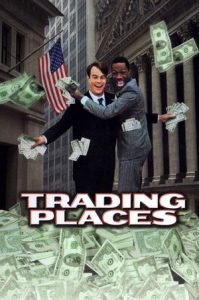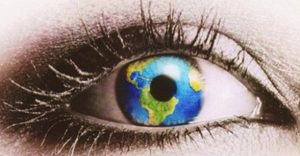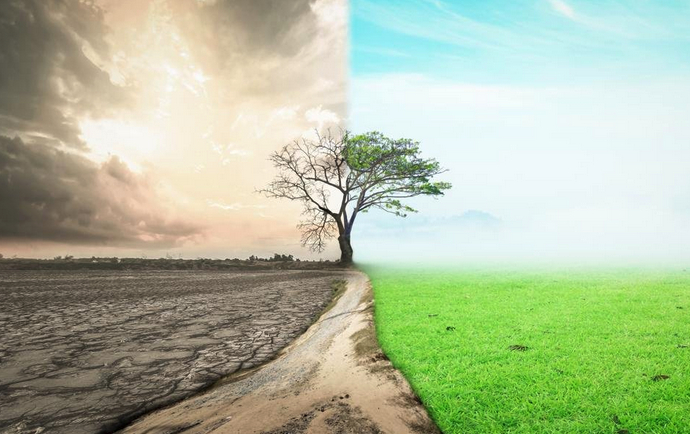My friend Brian was hitting golf balls on the practice range when I walked up.
Some golf driving ranges use artificial turf, but this range had grass. Naturally swings with golf clubs often take divots, and Brian was doing that. No problem — the divots get repaired and the grass grows back.
But Brian wasn’t using a new grassy spot every time, as many people would. In fact I watched him hit a couple of practice shots from a shallow divot.
So I said, “There is a lot of grass here, and you are welcome to use it.” He looked around and said, “Thanks, but I just can’t use it up. I have a philosophy of scarcity, and I think I need to save that grass.”
Puzzled, I looked up and down the driving range, and said, “That’s interesting. I have a philosophy of abundance. I see lots and lots of grass available to be used.”
And there we were, two friends looking at the same golf course driving range and seeing it in two very different ways.
Where do we get that?
I asked Brian where he thought that scarcity idea came from, and how long he’d had it.
He wasn’t sure how long, but assumed it came from what he was taught as a child. That made me ponder my own thinking and what I was taught about possessions.
 Of course it also made me think of the movie Trading Places, where the age-old question of nature vs. nurture was examined.
Of course it also made me think of the movie Trading Places, where the age-old question of nature vs. nurture was examined.
The phrase “nature versus nurture” goes back to 1874, and the search for understanding how we humans become who we are is much older than that.
A couple of days ago I asked a friend about scarcity versus abundance thinking. In the course of the conversation he said he and his siblings grew up “dirt poor.” Now they are adults and he has abundance thinking while his brother thinks scarcity.
Same parents, same environment, different views.
Perhaps that is true for you. If you have siblings, they may see the world in a way you don’t, and vice versa.
Clearly it is not one factor or another, but a complex combination of many influences.
The good news? Whichever way of thinking you have does not have to be the one you have in the future: you really do get to decide.
It starts with a worldview
The term “worldview” is being increasingly used as a differentiator, so you may see it in the news during the coming political season.
In fact just the other day Jen Psaki, a former White House press secretary, used the term in some disparaging remarks she made about Mike Johnson, now Speaker of the House of Representatives. (She didn’t like his.)
In case it is new to you, here are things a worldview covers. The list was created in large part by Leo Apostel who was a Belgian philosopher.
He said every worldview should have:
- an explanation of the world
- an answer to where the world is going (the future)
- a set of values, morals, or ethics
- a theory of action showing us how to reach our goals
- an answer for “what is true and what is false” (a theory of knowledge)
- and it should know about its own origin
Can you see where abundance or scarcity thinking would fit in those six?
Part of it could be found in the set of values, part in the future of the world, but mostly this thinking fits in the “what is true and what is false” category.
Do you believe there is “more than enough to go around,” or do you believe almost all resources are finite?
The answer to that question might depend in large part on your worldview.
How do you see the world?
Broadly speaking, there are three popular worldviews. They are generally known as the Christian worldview, the postmodern worldview, and the scientific naturalism worldview.
 Please note that you do not have to be a scientist to have a scientific naturalist worldview. You do not have to be a Christian to have a Christian worldview. Having the first doesn’t make you a scientist any more than having the second makes you a Christian.
Please note that you do not have to be a scientist to have a scientific naturalist worldview. You do not have to be a Christian to have a Christian worldview. Having the first doesn’t make you a scientist any more than having the second makes you a Christian.
But if you answer the six points above, you can probably figure out at least some of your worldview.
The most important battleground, worldview wise, is the theory of knowledge. How do we know what is true and what is false?
The postmodern would say that is up to you. “Your” truth. A scientific naturalist might say only science can determine what’s true. A Christian worldview would say there is absolute truth — true for all times and all people.
What does that have to do with abundance and scarcity? Plenty.
Abundance Mentality and Scarcity Mentality were coined by Stephen Covey in his bestselling book The 7 Habits of Highly Effective People. He wrote, “Most people are deeply scripted in what I call the Scarcity Mentality.” He went on to call it “the zero-sum paradigm of life.”
In this thinking there is only one pie. If I get a big piece, you get a small piece. The pie refers to everything from income to recognition to a parent’s love. There is “only so much,” and if someone else gets more I miss out.
Abundance Mentality, on the other hand, says there is plenty out there and more than enough for everyone. That includes income, recognition, and a parent’s love.
Your call
If you have a Christian worldview, an abundance mentality should be yours. But I know those for whom that is not true, because other worldviews are so prominent and so widely taught.
Having experienced both, I can tell you that an Abundance Mentality is very freeing, while Scarcity is very confining.
Brian would tell you the same thing. He began to examine Scarcity and Abundance, and now — I am happy to say — he will hit balls off the grass.
It may not be quick and easy to move from Scarcity to Abundance, but it really is a choice.
And by the way, Scarcity encourages selfishness. Abundance encourages selflessness.
You know which one is good.

One Response
So good Lewis. You are not only giving us ways to do good but you are giving us ways use the Holy Spirit to think well.